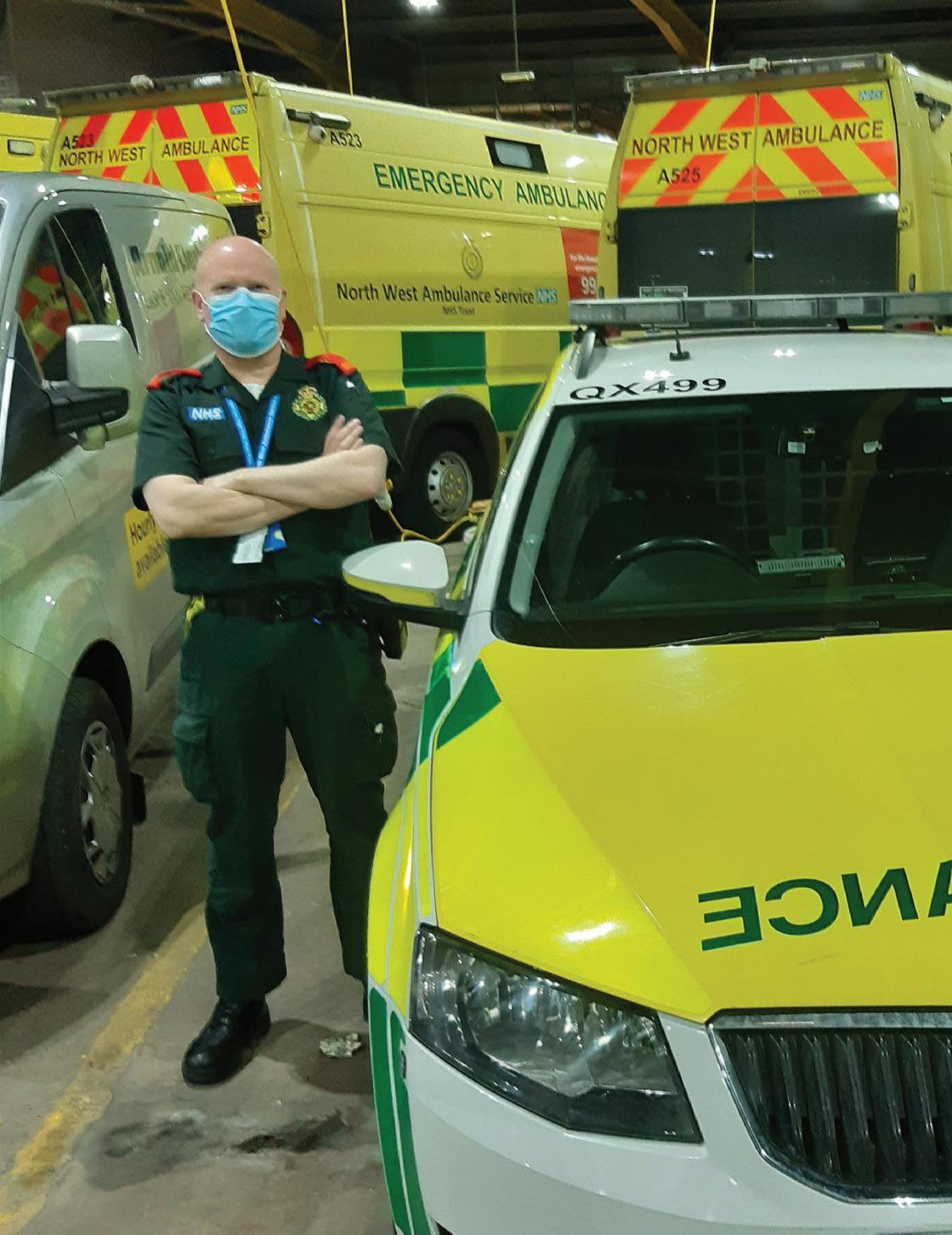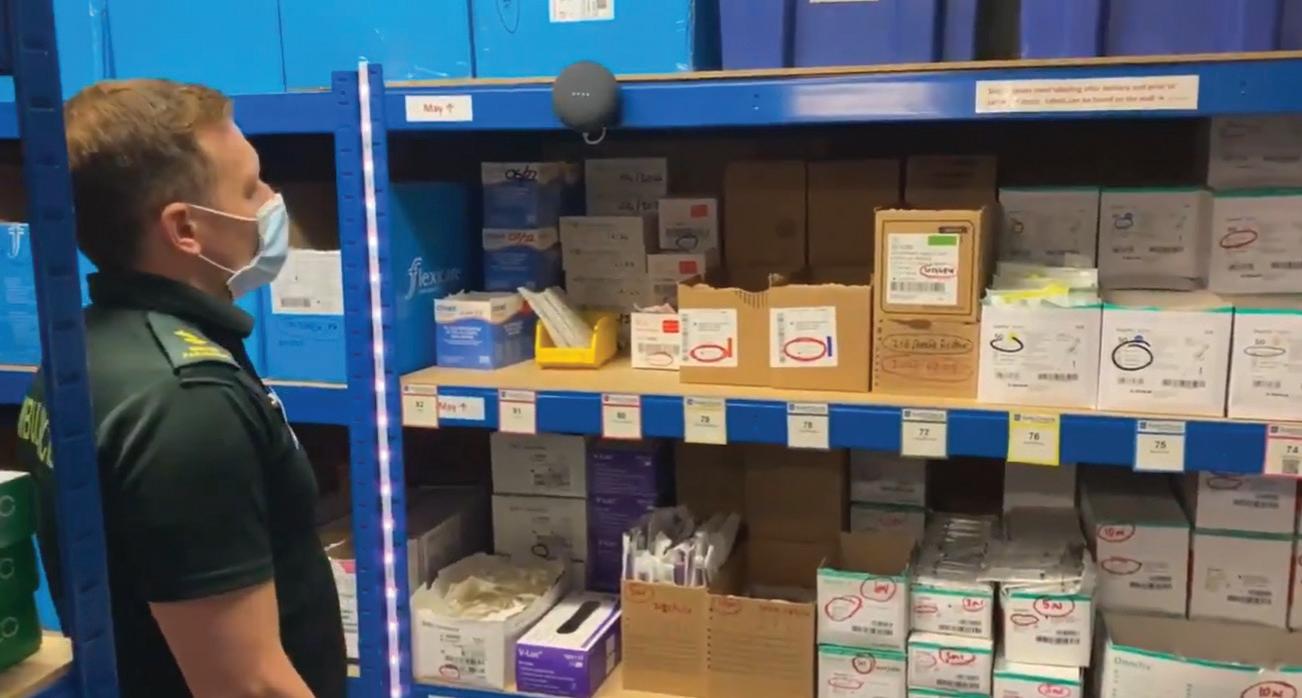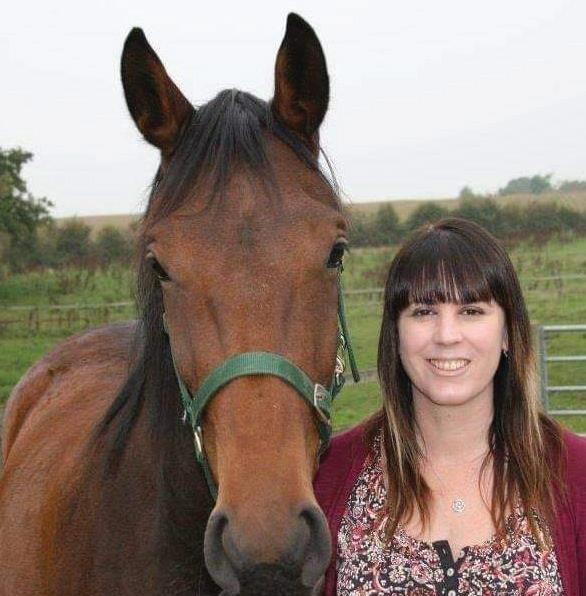
4 minute read
Recognising the signs of mental illness
Clinical staff in the NHS don’t get anxiety or depression. Right?
Wrong. Mental health problems are one of the main reasons for staff absences with anxiety, stress and other psychiatric illness accounting for 28.3 percent of all sickness leave in the NHS in May 2020.
As the largest public sector employer in the UK, ensuring staff are supported and cared for with their mental health is paramount to the NHS, especially in light of the pandemic. We talk to Advanced Paramedic Alex Tatman - based in Oldham - about his own battle with anxiety and mental health.

“The problem for me was not recognising the signs I was ill before I was diagnosed. For at least 18 months to two years leading up to this, looking back, I can see all the signs were there; from my behaviour, the mood swings and how I felt internally.
“It came to a head in May 2019, I remember taking a phone call from my eldest, he had forgotten his gym kit and asked would I bring it to him at school. On an ordinary day this is no big deal, it is ten minutes down the road but that day I was really struggling and it took a simple task like this for me to reach breaking point.
“I remember driving to the school and being rooted to the seat of my car when I arrived. I couldn’t get out. I was panting away with a tight chest and felt this overwhelming sense of panic and fear. I didn’t know it then but I was having an anxiety attack. The rational part of my brain was saying ‘it’s just a pair of shorts just take them in’ and the irrational side was saying ‘it will be the worst thing in the world if you get out of this car.’ It was something I had never experienced before.
”Later that night when my wife came home from work, after I put a brave face on with the kids until she got home, I told her what had happened and how I was feeling. Actually acknowledging the problem was cathartic to me and was without doubt the first step in the journey towards recovery.
“It was only after I started my recovery process that I realised how detrimental it was to be in denial about my mental health. Writing it off as being tired due to prolonged shift work or the stresses of my role, were simply me ignoring the problem and hoping it would go away. Being provided with a diagnosis had a significant positive impact and made me realise where the root of my health problems lay.”

Alex managed to get a GP appointment that week and from there got the relevant help and support he needed which taught him techniques to cope with anxiety. In order to get better it was necessary for Alex to take extended time away from work and in this time he sadly lost his father in law, his mum and his dad within seven months.
“2019 has probably been and will remain the most difficult year of my life I have ever faced - even compared to the pandemic. Being so ill with my mental health and on top of that losing three people I loved so much.
“Having anxiety and depression never leaves you. You learn how to live with it and adapt new thought processes and behaviours which help you to cope. My management team and colleagues have given me incredible support which has helped me get back on my feet.”
According to a recent report in the Guardian, there has been an ‘explosion’ of anxiety in Britain over the past decade with research showing the financial crash, austerity, Brexit, climate change, social media and now the pandemic being accountable for the massive rise in the condition.
Anxiety, which is a debilitating mental illness, has trebled amongst young adults and has increased across the board amongst men and women; affecting 30 per cent of women aged 18 to 24. There is help and support out there, you do not have to suffer alone.
Alex’s top technique for helping anxiety: challenging unhelpful thoughts.
If you find yourself having any of these ask yourself the following:
>What evidence do I have for the thought?
> What evidence do I have against the thought?
> What would I tell a friend (to help them) if they had the thought?
> Think of my calmest, most rational and supportive friend/relative. How would they react to the thought? What would they say to me?
> Am I worrying about an outcome that I can’t control? Is there any point to this type of worry?
> How does the thought affect me? How does it make me feel? Is it helpful in any way, or just distressing?
> What good could I gain if I gave up the thought? How would things be different if I didn’t believe the thought?
> If the causal thought was true, what is the worst, realistic outcome? Is it as bad as I think it could be?










